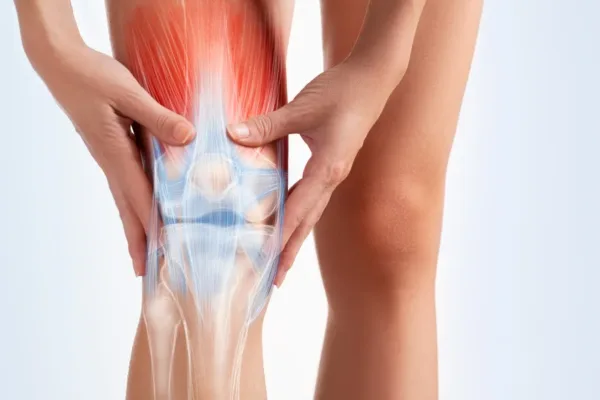Understanding Modern Knee Replacements
Knee replacement surgery has evolved significantly, providing patients with improved outcomes and a more natural feel after surgery. Traditional knee replacements often used standardized implants that did not account for individual anatomical differences. Recent advancements now focus on creating a more personalized approach, leading to better recovery and overall patient satisfaction.
Tailoring Knee Replacements to the Patient’s Anatomy
According to Michael Granade, M.D., an orthopaedic surgeon at Louisville Hip and Knee Institute, “Every patient’s knee is different, and they want to restore their anatomy to the way it was before they had arthritis. This helps with recovery as we have to do fewer soft tissue releases, which leads to less bleeding, inflammation, swelling, and pain. Patients are getting up quicker, moving quicker, and recovering quicker”.”Modern knee replacements are designed with personalization, recognizing that every knee is unique. This approach aims to restore the knee to its pre-arthritis state as closely as possible.
This customization involves advanced imaging techniques, such as 3D imaging, and detailed preoperative planning to assess joint alignment and structure. Surgeons use these tools to design a knee replacement that aligns perfectly with the patient’s natural structure. By focusing on the individual’s anatomy, surgeons can achieve better alignment and improved function.
Benefits of Personalized Knee Replacements
 Personalized knee replacements offer several key benefits compared to traditional methods. These include:
Personalized knee replacements offer several key benefits compared to traditional methods. These include:
- Reduced Need for Soft Tissue Releases: Custom implants minimize the need for soft tissue adjustments during surgery, reducing trauma and inflammation to surrounding tissues.
- Decreased Postoperative Pain: Patients experience less pain due to minimal disruption of soft tissues.
- Faster Recovery: Patients can get up and move sooner after surgery with less swelling and pain.
Research has shown that patients who undergo total knee replacement with the aim to restore their anatomy often have less postoperative pain as well as better long term outcomes. A study published in the Journal of Arthroplasty in 2022 demonstrated better short term pain control after surgery as well as improved patient outcomes when total knee replacement was performed with the goal to recreate the patient’s anatomy. Studies such as this demonstrate the benefit of utilizing a customized approach to total knee replacement.
Advances in Recovery After Knee Replacement Surgery

Innovations in surgical techniques and postoperative care have significantly improved recovery times for knee replacement patients. Dr. Granade notes that patients now recover faster due to reduced inflammation and swelling, a direct result of personalized approaches to surgery.
Modern recovery protocols emphasize:
- Early Mobilization: Patients are encouraged to move shortly after surgery to improve blood flow and prevent stiffness.
- Physical Therapy: Tailored exercises help restore strength and range of motion in the knee.
- Pain Management Strategies: Advanced pain control methods focus on minimizing discomfort while supporting recovery.
These advancements have transformed the recovery process, enabling many patients to regain mobility and independence sooner.
When to Consider Knee Replacement Surgery
Knee replacement surgery is an option for patients whose quality of life is severely impacted by knee pain or arthritis. Common signs that it may be time to consider surgery include:
- Chronic knee pain that limits daily activities
- Stiffness and swelling that do not improve with conservative treatments
- Difficulty walking or climbing stairs
- Pain that disrupts sleep or rest
Consulting with an orthopaedic specialist can help you learn about your options for knee replacement surgery. During a consultation, you can expect a detailed evaluation of your symptoms, imaging to assess joint health, and a discussion about surgery’s benefits and potential outcomes. This patient-centered approach ensures that your care plan aligns with your goals and lifestyle. Early intervention can lead to better outcomes and a smoother recovery process.
Advances in knee replacement technology and techniques focus on improving outcomes by addressing individual patient needs and concerns. If you are considering knee replacement surgery, schedule a consultation to learn how personalized care can help you achieve improved mobility and quality of life.

